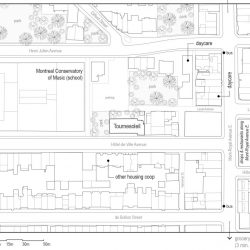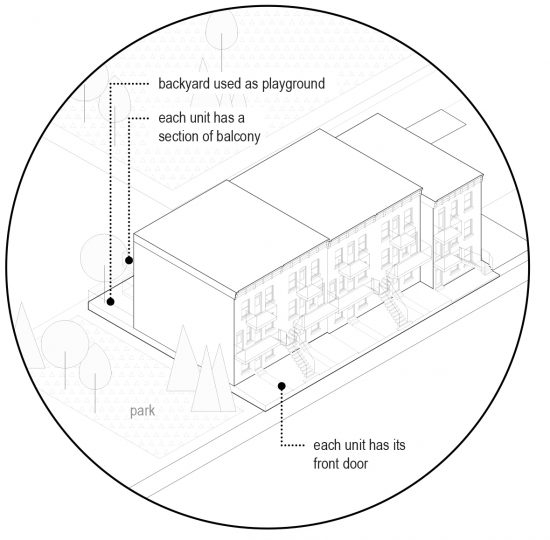Montreal is home to hundreds of housing cooperatives. Several of them were founded by activist and professional middle-class women to empower low-income women. This paper studies how the physical (architectural) designs of feminist housing cooperatives sought to empower women and how their design aspects have been received by the residents.
Part of a longer history of women’s organized efforts to improve cities in North America for women since the nineteenth century, starting with material feminists and suffrage and settlement house movements, Second-wave feminism led to competing and complementary perspectives on women, how they experience and use the built environment and how their experience can be improved. One strand advocated for integrating hitherto male-only spaces and institutions, and another for creating women-only spaces such as women’s libraries, women’s housing and women’s shelters (Spain, 2016). Feminist housing cooperatives fit the latter scheme.
This paper examines several cooperatively-owned and managed housing projects established in Montreal for women. Feminist housing activists recognized that women, and especially women-led single parent families, were at a disadvantage in both the labor market and in accessing affordable housing (Wekerle, 1980). Cooperative housing projects helped revitalize inner city neighborhoods by improving the building stock and existing community networks, and importantly without causing displacement. Feminists emphasized collective spaces and shared facilities that would support diversity, but, as this paper will show, such ambitions ran short of the CMHSC and other funding agencies’ goals of standardized units and the reality of meagre budgets. Even when afforded and realized, however, further problems emerged about participation and policing. By examining how these important experiments fared using oral history and cultural landscape analysis, this research will contribute to current discussions on housing activism and gender sensitive housing.
Ipek Tureli et Virginie Lasalle
research funded by the Social Science and Humanities Research Council, the Canada Research Chair in Architectures of Spatial Justice and the Canadian Foundation for Innovation 2018-


